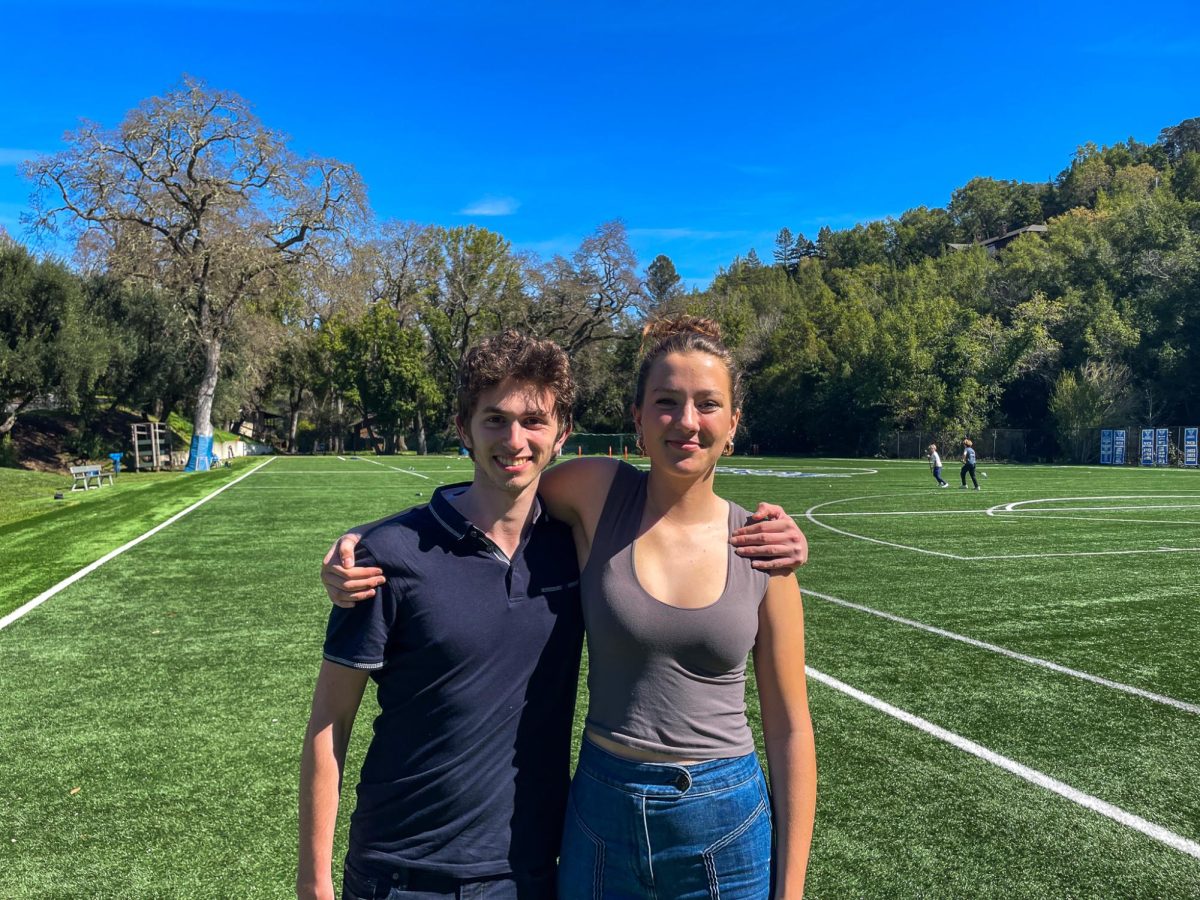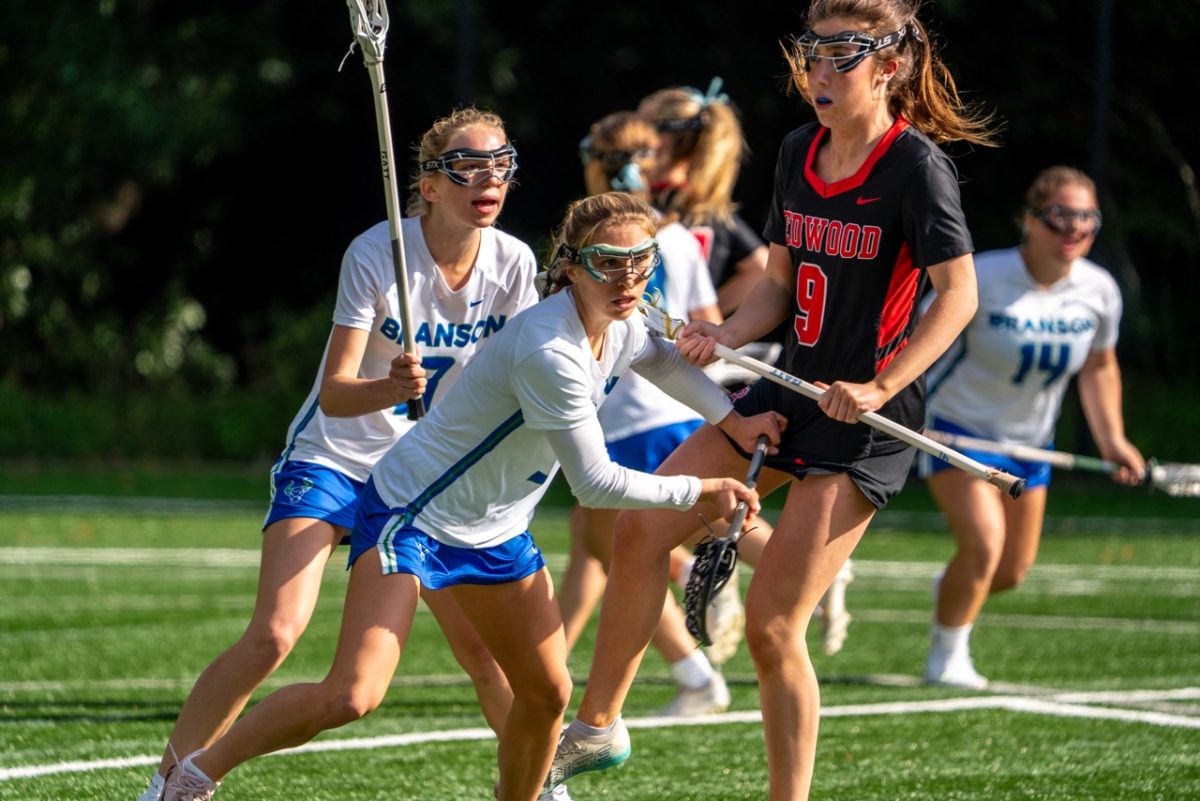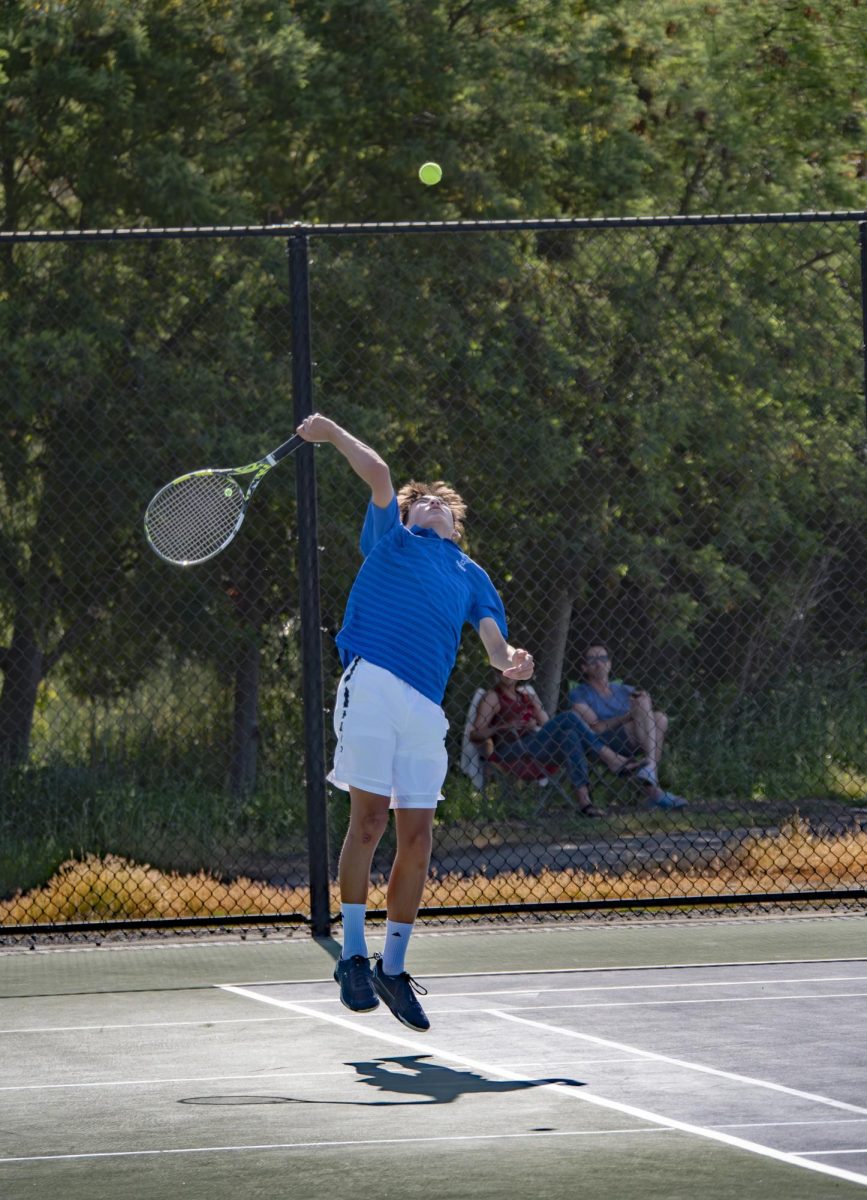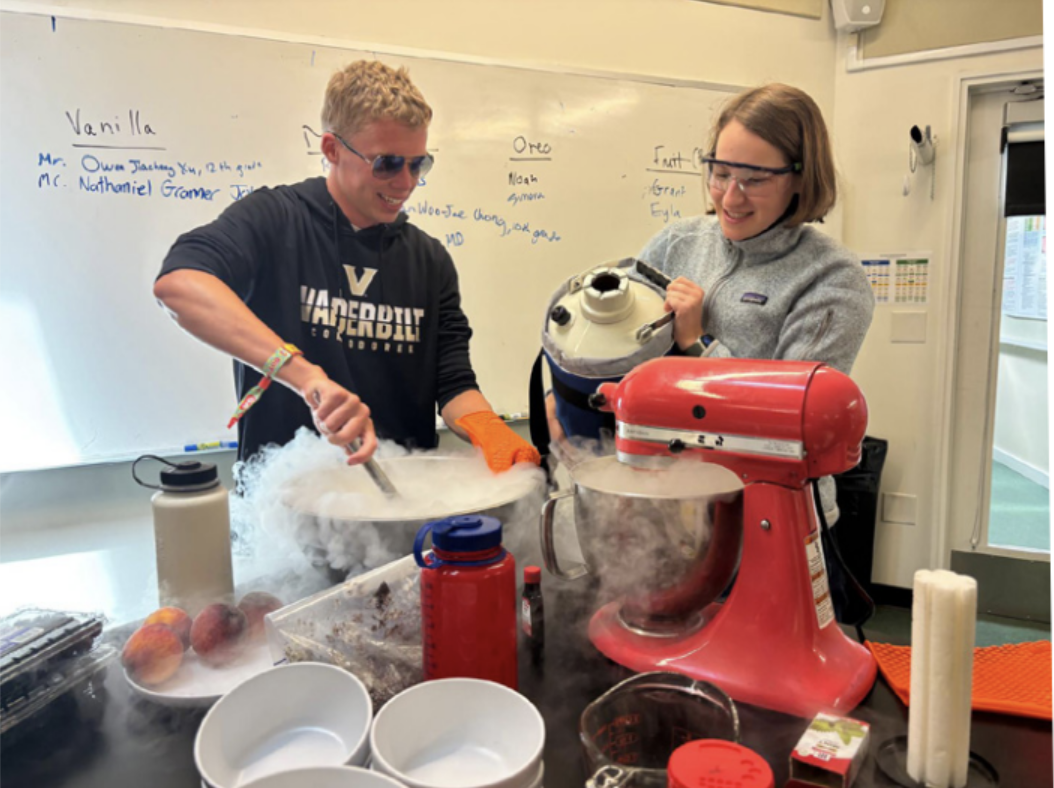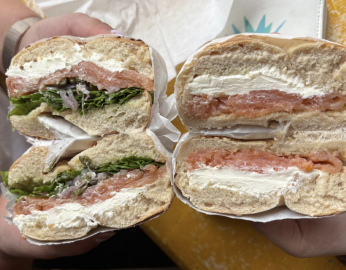After months of designing, coding, and marketing their app, Alexander LaMonica ‘24 and Sabine Fuchs ‘25 are almost ready to release Nectar Connect to the public. The project was made possible by the Impact App Challenge, which was introduced to Branson last year.
The inspiration for their app stems from the time LaMonica spent in the hospital, battling Stage 4 Hodgkin’s lymphoma.
“I noticed there weren’t a lot of support systems to connect teens to each other because everything was designed for younger children, like 7 or 8 years old,” he said.
In response to this demand, LaMonica and Fuchs designed Nectar Connect as a way for teens with cancer to find and support each other.
“Being a teenager alone takes so much of a toll on your mental health and it’s so important to have these social connections,” said Fuchs. “If you’re in treatment, maybe you’re out of school for a while and you don’t get that opportunity to interact with other people, which can have significant impacts on your mental well-being.”
With a clear purpose in mind, LaMonica and Fuchs pursued the idea, a project which grew trickier as it progressed.
“We started off pretty strong with design ideation … but once we got to user testing that’s when it really started to slow down,” LaMonica said. “We had to find people [to test the app], which ironically was the problem our app was trying to solve.”
Due to HIPPA privacy laws for patients, the team couldn’t find possible users through any medical system, so they turned to Facebook groups.
Another difficult part of the process was coding the app.
LaMonica and Fuchs began working remotely with engineers from Ukraine on a regular basis. However, “after the sixth week, it started to stagnate,” LaMonica said. “We still had a lot of bugs but they weren’t getting fixed that fast so that was kind of a long process which, in some sense, we will always be working on.”
In addition to the grueling and tedious work of engineering the app, the two also ventured to events for marketing and networking, such as the Pediatric Neuro Oncology Consortium.
“We went there alone which was kind of wild and we stuck out like a sore thumb because we were the only teenagers,” said Fuchs.
At these events, the two received a surplus of positive feedback, providing them the inspiration needed to keep pursuing this difficult project.
“I think a favorite part is where you get a taste of the ambition and these hopeful moments where you are talking with an expert and they say they really need this and want to help you,” said LaMonica. “That’s a really inspiring part of it just because there is so much hope in that moment,”
The impact Nectar Connect is having before it is even released to the public is astounding.
“The impact has been within the scope of our beta testers, who have given almost too much positive feedback,” said LaMonica. “One girl I was talking with could hardly contain her laughter when she was going through the screen because she thought it was so amazing.”
LaMonica and Fuchs found happiness in the process as well as the outcome.
“I have been loving marketing, that is my joy,” Fuchs said. “Figuring out how we are going to reach people has been a struggle but it has also been a huge learning curve. Our current plan right now is to reach out to advocacy groups and nonprofit organizations and hope to spread it by word of mouth.”
Anyone’s help, they shared, has a tremendous impact.
“Truly the impact that one adult or one person has on it is so impressive. A lot of people are coming in having had a parent who was diagnosed or passed away from cancer and they feel really passionately about helping us,” said Fuchs.
Since the app is nonprofit, the support from these individuals makes all the difference.
Fuchs added, “I think that is how we will grow, because of the passion and the love people have for this project.”
As the app gets closer to being released on the App Store, their work is nowhere close to slowing down.
“There is always something more to do,” said Fuchs. “It’s very much an experience with the real world, the real professional world. As students, we get so narrow-sighted into this idea of doing this thing, getting graded on a scale and getting into college.”
“If we just stop, the app’s not going to get made,” added LaMonica. “It’s always up to us to keep pushing ourselves further, and that takes a lot of motivation.”
It has been a long process, from entering the Impact App Challenge, working with engineers, attending events to network, to every small step in between.
Through all of the ups and downs the project threw at LaMonica and Fuchs, one theme emerged: the importance of initiative.
“It can take you so far, and if you have an idea or a passion and you want to make it happen, obviously there can be barriers, but the most important thing you can do is keep going,” said Fuchs.

